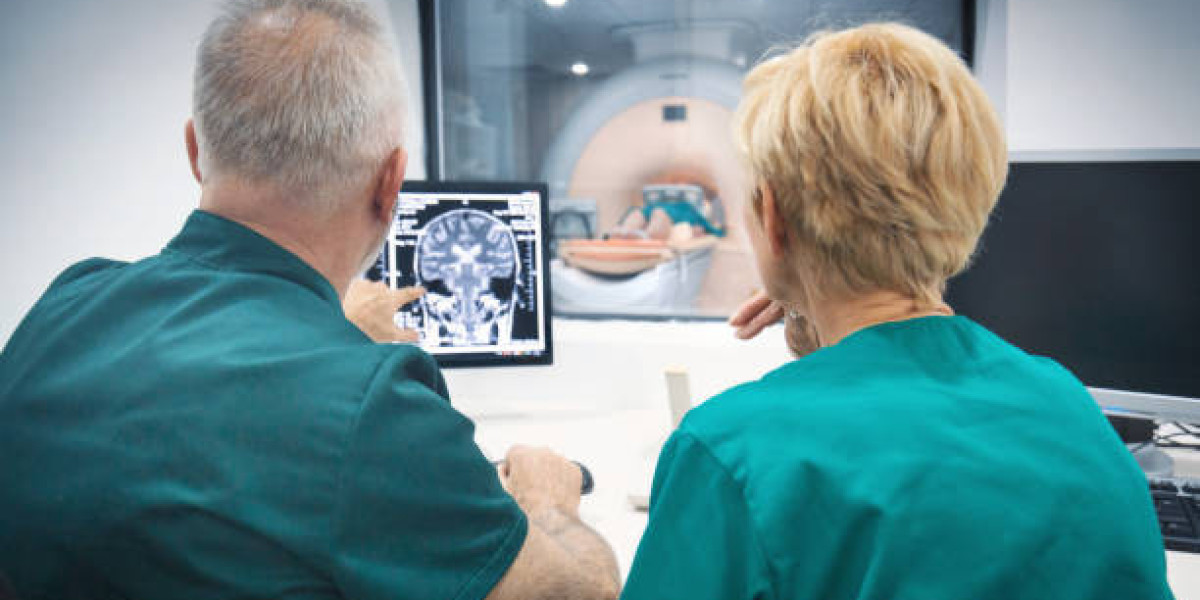When faced with critical brain conditions such as tumors, aneurysms, or trauma, craniotomy surgery can be a life-saving procedure. Craniotomy surgery in Riyadh is performed by highly skilled neurosurgeons using advanced techniques to ensure the best outcomes for patients. Whether it's to remove a brain tumor, repair a blood vessel, or address other serious neurological conditions, this procedure can greatly improve a patient's quality of life.
This blog will dive into the intricacies of craniotomy surgery, its benefits, and what patients should expect when considering this procedure in Riyadh.
What is Craniotomy Surgery?
Craniotomy is a surgical procedure in which a portion of the skull is temporarily removed to access the brain. This allows surgeons to treat a variety of brain conditions. Once the surgery is completed, the bone flap is replaced and secured.
- Procedure purpose: A craniotomy is performed for diagnostic or therapeutic purposes related to brain conditions.
- Skull access: Surgeons temporarily remove part of the skull to operate on the brain.
- Types of conditions: Tumors, aneurysms, hemorrhages, and traumatic injuries often require a craniotomy.
Common Conditions Treated by Craniotomy Surgery
There are numerous brain conditions that may require craniotomy surgery. Some of the most common include:
1. Brain Tumors
Brain tumors, whether benign or malignant, may require surgical removal. Craniotomy allows the surgeon to access the tumor, remove as much of it as possible, and alleviate pressure on the brain.
- Tumor removal: Craniotomy is essential for removing both malignant and non-malignant brain tumors.
- Pressure relief: Surgery helps relieve pressure on the brain caused by growing tumors.
- Symptom improvement: Patients often experience a reduction in symptoms such as headaches, seizures, and vision problems.
2. Aneurysms and Vascular Malformations
A craniotomy is often performed to repair or remove aneurysms (abnormal bulges in blood vessels) or arteriovenous malformations (abnormal connections between veins and arteries).
- Aneurysm repair: Surgeons clip or remove aneurysms to prevent rupture.
- Preventing strokes: Addressing vascular malformations reduces the risk of strokes or brain damage.
- Enhanced blood flow: Surgery restores normal blood flow in the brain.
3. Traumatic Brain Injuries
Severe head trauma often necessitates a craniotomy to relieve swelling, remove blood clots, or repair skull fractures.
- Swelling reduction: Craniotomy alleviates pressure caused by swelling in the brain after trauma.
- Clot removal: Surgery removes blood clots to prevent further damage.
- Fracture repair: It may be necessary to fix fractures or other injuries sustained during an accident.
Benefits of Craniotomy Surgery
Craniotomy surgery offers numerous benefits, especially when performed by experienced neurosurgeons using state-of-the-art technology. Some of the key advantages include:
- Life-saving intervention: Craniotomy is often the only way to treat life-threatening brain conditions.
- Improved neurological function: Surgery can alleviate symptoms such as seizures, motor difficulties, and cognitive impairments.
- Reduced risk of complications: Treating brain conditions early can prevent further complications, such as strokes or permanent brain damage.
Why Choose Craniotomy Surgery in Riyadh?
Craniotomy surgery in Riyadh has gained a reputation for high-quality care and advanced medical techniques. Patients benefit from the expertise of well-trained neurosurgeons and modern facilities equipped with the latest technology.
- World-class expertise: Riyadh is home to some of the most experienced neurosurgeons in the region.
- Advanced technology: Clinics and hospitals in Riyadh are equipped with cutting-edge equipment for precise surgical procedures.
- Patient-centered care: Patients receive personalized treatment plans and comprehensive post-operative care to ensure optimal recovery.
Types of Craniotomy Procedures
Not all craniotomy surgeries are the same. There are several types of craniotomies depending on the specific needs of the patient and the location of the issue in the brain.
1. Stereotactic Craniotomy
This type of craniotomy uses advanced imaging technology to pinpoint the exact location of the brain condition. It is minimally invasive, allowing surgeons to access smaller areas with greater precision.
- High precision: Stereotactic guidance ensures accuracy in targeting the affected area.
- Minimally invasive: This technique results in smaller incisions and faster recovery times.
- Ideal for: Tumor biopsies, deep-seated lesions, and minimally invasive procedures.
2. Extended Craniotomy
In some cases, a larger portion of the skull may need to be removed to access more extensive brain areas. This is often done for complex tumors or conditions affecting a larger area of the brain.
- Larger access area: The surgeon removes a larger portion of the skull for comprehensive treatment.
- Complex conditions: This is often necessary for larger tumors or widespread brain issues.
- Longer recovery: Extended craniotomies typically require more extended recovery periods due to the extent of the surgery.
3. Endoscopic Craniotomy
This type of craniotomy involves the use of an endoscope, a small camera, to view the surgical area. It allows for smaller incisions and is less invasive than traditional methods.
- Minimally invasive: Endoscopic craniotomies use small incisions, reducing recovery time and scarring.
- Enhanced visibility: Surgeons can view the area with high-definition cameras for precise surgery.
- Common uses: This technique is often used for procedures such as tumor removal and drainage of cysts.
Preparing for Craniotomy Surgery in Riyadh
If you are considering craniotomy surgery in Riyadh, preparation is key. Patients should follow specific guidelines to ensure a successful surgery and smooth recovery.
1. Pre-Surgical Consultation
Before undergoing craniotomy surgery, patients will have a thorough consultation with their neurosurgeon to discuss the procedure, risks, and expected outcomes.
- Detailed medical history: Your surgeon will review your medical history and perform necessary tests.
- Understanding risks: It is essential to understand the potential risks associated with the surgery.
- Discussing options: Surgeons will explain the type of craniotomy required and other potential treatments.
2. Medical Testing
Patients may undergo several pre-operative tests, such as MRIs, CT scans, and blood tests, to ensure they are in good health for surgery.
- Imaging scans: MRIs and CT scans help pinpoint the location of the brain issue.
- Health evaluations: Blood tests and other assessments ensure patients are fit for surgery.
- Plan creation: The results of these tests allow surgeons to create a detailed surgical plan.
Post-Operative Care and Recovery
The recovery process after craniotomy surgery can vary depending on the type of procedure and the individual’s overall health. However, some general steps apply to most cases.
1. Immediate Post-Op Care
After surgery, patients are monitored closely to ensure there are no immediate complications. They may stay in the hospital for several days for observation.
- Monitoring: Surgeons and medical staff monitor brain function, vital signs, and overall health post-surgery.
- Pain management: Pain relief and medications will be administered to ensure comfort.
- Hospital stay: The length of hospital stay varies based on the procedure and patient’s recovery speed.
2. Long-Term Recovery
The recovery from a craniotomy can take several weeks to months, depending on the complexity of the surgery. Patients will gradually regain strength and may need rehabilitation.
- Gradual healing: Recovery times can range from a few weeks to several months.
- Physical therapy: Some patients may require physical therapy to regain full function.
- Follow-up visits: Regular check-ups with the neurosurgeon will ensure the recovery is progressing well.
Risks and Potential Complications
Like any surgery, craniotomy carries potential risks. However, when performed by experienced surgeons in state-of-the-art facilities, complications are minimized.
- Infection risk: There is always a risk of infection following any surgical procedure.
- Bleeding: In rare cases, patients may experience bleeding in or around the brain.
- Neurological issues: Some patients may experience temporary or permanent neurological problems, such as speech difficulties or muscle weakness.
How to Choose the Right Surgeon for Craniotomy in Riyadh
Selecting the right surgeon is one of the most critical decisions when considering craniotomy surgery in Riyadh. Here are some factors to consider:
- Board certification: Ensure the surgeon is board-certified in neurosurgery.
- Experience: Look for a surgeon with extensive experience in performing craniotomy surgeries.
- Reputation: Read reviews and testimonials from past patients to gauge the surgeon’s reputation.
Conclusion
Craniotomy surgery offers a life-changing solution for individuals facing serious brain conditions. Whether it’s a tumor, aneurysm, or traumatic injury, craniotomy surgery in Riyadh is performed by highly skilled neurosurgeons, offering patients the best chance for recovery and an improved quality of life. With the advanced facilities and expertise available, Riyadh has become a top destination for neurosurgical care, offering patients peace of mind as they embark on their journey to better health.








